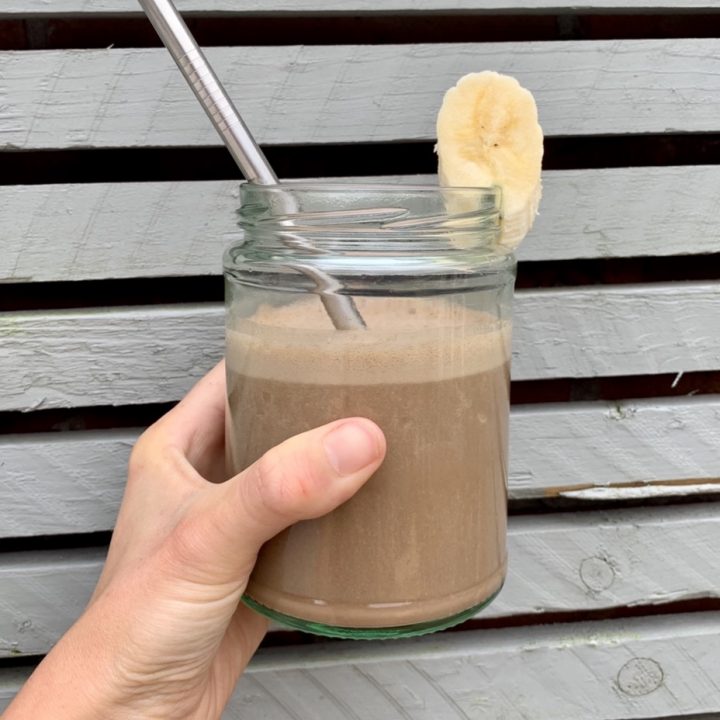
Calories 101
30th August 2022
Why Eat Seasonal?
1st September 2022As the seasons change, so does the way we live our lives. Generally in the spring / summer months; with longer days and lighter nights, we tend to have more motivation to be active, socialise and get stuff done! Often, when the autumn / winter months hit, hibernation mode kicks in and cosy nights on the sofa feel a lot more appealing. This is us living in tune with the seasons, along with our internal body clock (circadian rhythms) sending us signals for when it is time to be active and time to rest.
There are many different ways in which our bodies adapt as the seasons change, and this can impact our motivation, activity levels and our diet too. Our cycle even flows through its own seasons each month, and when we are able to understand and honour this, we are more likely to show ourselves more kindness and compassion during this time.
As we move into the Autumn months, these lifestyle changes are often more noticeable, and as the nature around us changes, so do our internal needs:
Movement
Generally in the Spring / summer months, there is a rise in motivation and energy levels. As the days are longer and the temperature rises, we tend to have more ‘get up and go’, meaning routines with exercise can become more regular. However, as the dark mornings and evenings arrive, we notice a definite energy shift, and snoozing the alarm / nights on the sofa feel so much more appealing. It is important to honour this shift, as our bodies were designed to rest and retreat when it goes dark. However, this doesn’t necessarily mean folding up the gym leggings until March, it’s all about finding an intuitive balance. Remember, movement isn’t just for physical health; it supports our mood, mental wellbeing and our immune function – each of which are known to take a bit of a hit in the winter months. Could you try a different workout class, wrap up and go for a lunchtime walk, or mix up the time of day you are moving in order to make it work for you?
Diet
Another great way to live in tune with the seasons is through our dietary choices and what we decide to eat, when. It’s exciting that as the seasons change, so do our options for fresh and flavoursome, local produce. However, often, due to the wide variety of food that is available in the supermarkets all year round, it is easy to continue eating berries in December and butternut squash in June, without a thought for where the food has come from and how far it has travelled. Seasonal eating provides us with the freshest and most flavoursome produce all year round. Often, when eating in tune with the seasons where we live, our food has not been transported long distances, meaning it has less time on the shelves / in transit and we can consume it when it’s at its most nutritious. This can also make it less likely for the food to contain traces of chemicals which are sometimes used to artificially ripen produce for its journey. We need a variety of food in our diet both for health purposes and to keep our meals exciting! Eating in tune with the seasons encourages that all important diversity. So, why not do a bit of research and consider how you could make seasonal food more of a priority? Welcome those grounding root veggies in autumn and enjoy those cooler, more summery flavours come spring! Yum!
Sleep
Our body gets used to being active when it is light and begins to produce melatonin (our sleep hormone) when it goes dark, in preparation for bed – this explains why the longer days and darker mornings might leave us feeling more sleepy. When our body has no access to light it goes into a state of rest aka. ‘hibernation mode’ during those winter months. Serotonin (our feel good hormone) is produced by melatonin, therefore we want to be producing the appropriate amount of melatonin to impact our mood. One of the ways we can do this is through our access to darkness. If we scroll on our phones or use blue light right up to bedtime, it will not only impact our sleeping patterns, but our mood too. Try to honour natures light and darkness, and if you work to wake up and go to bed at the same time every day, this will set your internal clock (circadian rhythms) which will synchronise your body with the time of day and help to promote sleep all year round!
Social
Although were often social butterflies in the lead up to Christmas, our desire to socialise and get out and about can dip in the autumn / winter months. However after the lack of socialising over the last 18 months, individual preferences may have changed. Remember, it’s okay to say no, or do what feels best for you if you’re not feeling getting out and about, however, there are so many fun and cosy ways to socialise in the cooler months – Cinema trip? Hot yoga? Dinner party? Mix it up and make it work for you!
Cycle
Ladies, every month our cycles flow through their own seasons, too. And often how we feel during these stages of our cycles can be similar to how we feel in the seasons. It’s important to remember - we are individual and one person’s cycle is completely different to another, however generally menstruation can impact our diet and lifestyle habits, and motivation / mood too. The first part of our cycle is our ‘Winter' – this is when we bleed, so naturally our energy / motivation to work out, the food we chose to eat and our mood may be affected. Once we understand this a little better, we are more able to honour and show compassion toward the changes we may face during this stage. That said a little gentle movement at this time, alongside well balanced meals could ease some menstrual symptoms. In the lead up to ovulation, and after our period, we enter into our spring – during this time, similarly to the season Spring, we make a fresh start, tend to start feeling more positive and have more motivation and energy toward our health choices. This could be a good time to set goals and routines for the month ahead and get ourselves back into healthy habits. Summer – everyone’s favourite season brings ovulation. We have confidence, strength, flexibility and more motivation for productivity. As oestrogen peaks during this season, we have more energy and this could be a good time for more high intensity training/weight baring exercise, or to plan in more social events / important work meetings as self confidence is on our side! As we head into the autumn of our cycle in preparation for menstruation, we may feel a shift in how we feel and behave. Feeling more sensitive and tired is common, and honouring this with our routines, lifestyle and dietary choices is important before it all begins again!
Moving with the seasons can help us to live more intuitively and compassionately. It can help us to stay away from the pressure of how things ‘should’ be – and honour how things are in the present moment and why. Whether it’s more mindful movement, autumnal eating or a seasonal snooze – try to consider how the seasons may change the way you live your life.




